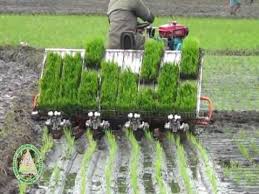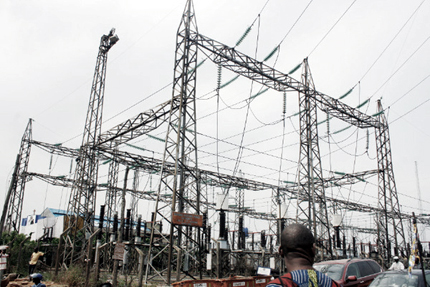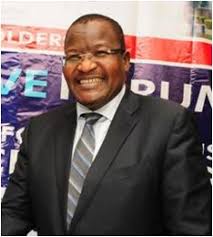Non State Actors (NSAs) in the nation’s agricultural sector have commended the Federal Government on the modest achievements recorded by the country in the implementation of continental policies and agreements.
This is even as they advised the government on sundry policy initiatives that should be embarked on to consolidate on the progress made so far in the implementation of the policy frameworks and pacts in order to ensure food security and sustainable growth of the agricultural sector of the economy.
The NSAs commended the government and canvassed the new issues requiring government’s special focus at the end of their Orientation Workshop On Agricultural Policy Instruments hosted by National Association of Nigerian Traders (NANTS) with the Support of TrustAfrica in Abuja.
In the communiqué issued at the end of the training session, the participants commended the modest achievements of the government on the conduct of a Joint Sector Review (JSR) and the formulation of second generation of the National Agriculture Investment Plan (NAIP-2); the constitution of a multi-stakeholder Steering Committee and a workshop for the JSR NAIP and the Biennial Review process.
In addition, they also considered the organization of the Steering Committee’s inaugural meeting; the development of a domestic CAADP compliance policy – the Agriculture Promotion Policy (APP – 2016-2020) – the “Green Alternative”; and the development of a draft APP’s – Investment Finance & Implementation Plan (IFIP) to be adopted as the Country’s NAIP by subjecting it to stakeholders’ validation at national and regional levels; amongst areas that government deserved commendations.
The NSAs pointed out that all of these efforts were indicators of the Federal Government’s commitment and readiness to implement the CAADP/Malabo obligations.
Similarly, the participants also commended the planned partnership between the Federal Ministry of Agriculture and Rural Development (FMARD) and the Office of the Vice-President on the Federal Government’s N-Power Initiative geared towards training 100,000 young graduates in the country as agricultural extension workers under the National Social Investment Programme; as well as steps towards the establishment of one-stop Agricultural Extension Service Delivery Centers’ in the 774 Local Government Areas (LGAs) for effective agricultural extension services delivery in the country.
According to them, this is an indicator of government’s commitment to addressing the perennial problem of moribund extension service delivery in Nigeria. However, they urged the Federal Government to liaise with the State governments to undertake this as a priority given that farmers are located in the Local Governments at the various States.
In addition to the foregoing efforts, to guarantee assured funding mechanisms for agricultural extension, government should set up an Extension Service Development Fund with the following possible cost sharing formula: Federal government– 40%, State government– 45%, Local Government Council– 10%, and Farmer-based Organizations/Benefitting Communities/farmers – 5%; while also considering setting aside 5% of agricultural export tax and 10% of agricultural import tax to facilitate agricultural extension among others.
They lamented Nigeria’s underperformance on the implementation of her CAADP/Malabo commitments given that the country scores only 3.4 out of the required minimum threshold of 3.9 points of the maximum 10 points benchmark in the recently concluded Biennial Review process
Specifically, they listed Low Hunger and Nutrition political commitment Index; Low capacity to execute regular planning and M&E; Poor Institutionalization of Mutual Accountability Mechanism (progress towards meeting the Malabo target is rather slow judging by the 44.4 percent attained compared with the 2018 target of 100 percent); and Problematic Access to Land, inputs and finance as thematic areas which are specific indicators showing Nigeria’s poor performance.
Others are, Declining Growth Rate in Crops; Weak Performance of the Livestock and Fishery Sector; Food Price Volatility, and; Food and Nutrition insecurity, etc
The participants, therefore, called on the government and stakeholders to channel efforts and mobilize actions towards improving these themes for the country to scale through the doldrums.
On the roles of NSAs in improving the nation’s agricultural sector budget performance, the participants agreed that NSAs had a moral responsibility and are better placed to engage and monitor government, development partners and other agriculture-related stakeholders with a view to influencing transparency and accountability in the system and mobilizing effective actions towards the realization of CAADP/Malabo commitments.
“Specifically, the NSAs agreed on the need to constructively critique work plan in line with the mutual accountability provisions and engage with the monitoring of core project sites and locations were emphasized as critical elements for food and nutrition security in Nigeria journey to fulfilling her national and regional/continental agric-policy obligations.
This is even as they also charged the NSAs to advance concerted joint advocacy targeted at policy makers, and essentially the relevant Parliamentary Committees- Agriculture, Appropriation, Finance, Rural development, etc; as well as the various agriculture related Ministries, Departments and Agencies, adding that such advocacy would constantly place a reminder on the table of the political class on the nation’s commitments at various leve
The participants also harped on the importance of institutionalized periodic meetings (ideally once in a quarter) to review the agriculture sector vis-à-vis policies, programmes and budgets/ overall investments in agriculture with a view to effectively preparing and submitting positions to the JSR and highlighted the importance of collaborating with the media to popularise the report of the JSR on regular basis was also highlighted
While noting with commendation some agriculture-related initiatives of the Nigerian government such as the Growth Enhancement Support Scheme (GESS), Nigeria Incentive-Based Risk Sharing System for Agricultural Lending (NIRSAL) and the Anchor Borrowers Scheme (ABS), they advised government to provide adequate information on the location of the GESS in order to provide confidence and assurance of continuity, impact and sustainability of other like Scheme and Initiatives.
Participants lamented the absence of agriculture policies at the State levels which makes agriculture sector budgeting hanging without policy approach. States were therefore called to develop agriculture policies that would take a cue from and alignment with the provisions in the Agriculture Promotion Policy at the federal level.
Similarly, the ineffectiveness and lack of autonomy of the Local Government Authority (LGA) administration as the third tier of government in Nigeria was condemned, as this has resulted in poor attention to the local small-scale farmers and on rural-based agriculture sector in general. Government is therefore invited to take a critical resolve towards ensuring the stability and autonomy of the LGAs to guarantee effective driver of agriculture policies at the community level.
While noting that the calculation of Malabo Declaration of 10% annual budgetary allocation commitment to agriculture in Nigeria does not consider the annual budgets of the 36 States of the federation, and the FCT, they advised the Nigerian government to make attempts at appropriate capturing of the overall annual investment that takes into cognizance the budgetary allocations at the Federal, States and perhaps the private sector investment in the agriculture sector; this way, Nigeria would be moving towards a better ranking on CAADP/Malabo score card.
Other recommendations made for government’s attention include, the need to develop a framework/handbook that documents practical illustration of how NSAs could engage in Monitoring and Evaluation and the NANTS was tasked with the responsibility of exploring the possibility of developing a model (like the Computable General Equilibrium Model) that assists in easy monitoring of field projects and programmes implementation by the government Agencies.
The participants commended the handbook and factsheet on CAADP and APP developed and published by NANTS with the support of TrustAfrica; but was further tasked with further exploring the possibility of translating these important documents in the four most popular local languages in Nigeria (namely; pidgin English, Igbo, Hausa and Yoruba) to enhance the popularization of the agriculture policy instruments among the rural communities and local farmers.
In addition, they underscored the unique position that NANTS wields as an NSA involved in the agriculture discussion in Nigeria, especially being the Secretariat of the CAADP Non-State Actors Coalition (Nigeria Chapter), the Secretariat of the Voices for Food Security (VFS) Campaign, as well as the Chair of the State of the Union (SOTU Campaign in Nigeria – a Coalition that monitors the implementation of African Union Instruments.
They therefore highlighted the need for NANTS to improve on service delivery, representation and leadership with specific regard to regular and effective communication strategy both to NSAs on one hand and government on the other hand.
The participants commended the training as it has given better perspective on the agricultural policy instruments developed for the purpose of facilitating implementation amongst the Non-State Actors with a view to increase agricultural performance in Nigeria, and therefore commended NANTS and TrustAfrica.




